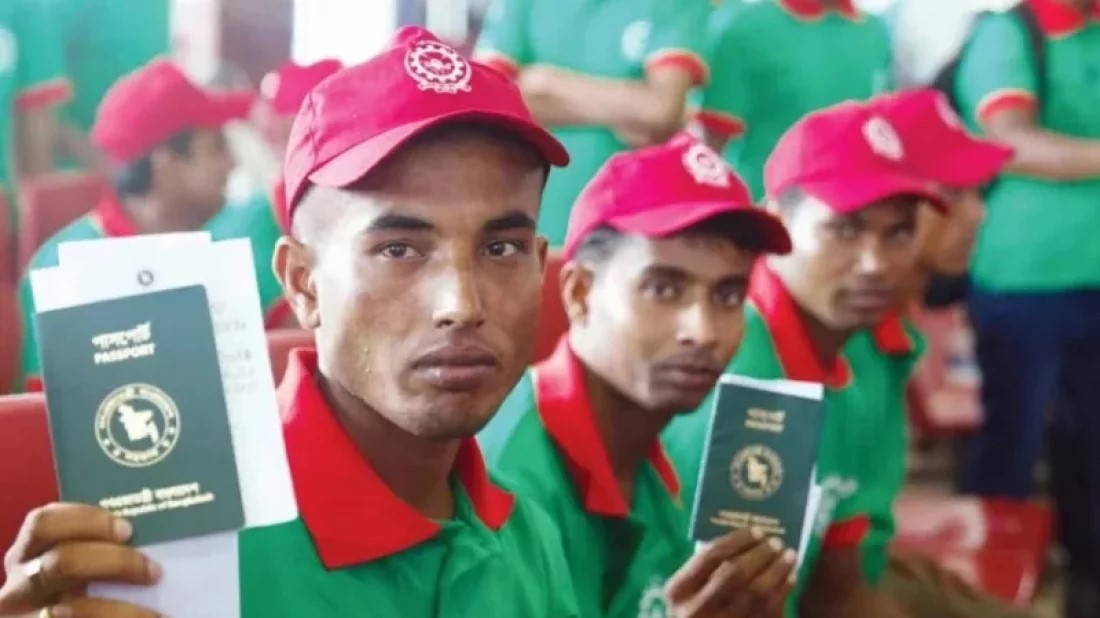Experts have urged the interim government of Bangladesh to take immediate and effective action against syndicates operating in Malaysia’s labour market, which have been accused of exploiting migrant workers and inflating recruitment costs.
They called on both the Bangladeshi and Malaysian governments to collaborate in addressing this issue and safeguarding the rights of migrant workers.
These concerns were raised at an event, titled “Syndicates in Malaysia’s Labor Market: Assessing Damage and Ensuring Accountability,” organized by the Refugee and Migratory Movements Research Unit (RMMRU) at The Dhaka Reporters Unity (DRU) auditorium on Wednesday.
At the event, RMMRU Executive Director Dr CR Abrar pointed out that, despite changes in the individuals involved, the core syndicate leaders have remained the same over the past decade.
“This has allowed the syndicates to maintain a tight grip on the recruitment process, with migrant workers from Bangladesh and other countries paying inflated fees for jobs in Malaysia,” he added.
He emphasized that these syndicates are responsible for severe financial losses to workers, making it essential for both governments to take joint action to protect their interests.
Fakhrul Islam, joint secretary of the Bangladesh Association of International Recruiting Agencies (BAIRA), said that although workers are recruited from 15 countries, including Bangladesh, the issue of syndicates has persisted for years.
Fakhrul Islam noted that while the official recruitment process should be transparent, unscrupulous agents have taken control of the recruitment process through online channels, driving up costs for workers.
“Some dishonest businesses are exploiting the system by controlling the entire recruitment process instead of assisting workers fairly and transparently,” Fakhrul Islam said.
“This syndicate-driven approach has significantly increased costs for workers and has also damaged Bangladesh’s reputation in the international labour market,” he added.
Fakhrul Islam added that such practices have created a significant imbalance among recruitment agencies, with some agencies taking advantage of the system to charge exorbitant fees.
He suggested that proper government monitoring of recruitment agencies and a more regulated process would help reduce overall costs and prevent exploitation.
“If the government can enforce strict monitoring and ensure that workers are sent according to an official list, the cost of sending a worker could be brought down to within Tk1.5 lakh,” Fakhrul Islam added.
He emphasized that this approach would not only make the process more affordable for workers but also help restore fairness and transparency within the recruitment industry.
Mustafa Mahmud, a member of the Bangladesh Association of International Recruiting Agencies (BAIRA), raised concerns about the growing influence of recruitment agencies in Malaysia, particularly following a shift in power in 2021.
He revealed that nearly 100 recruitment agencies are now operating with the support of the Malaysian government, controlling the process with little oversight or accountability.
Mahmud criticized the lack of meaningful reforms after the change in government following the anti-discrimination movement, stating that despite promises of action, the situation had only worsened.
He noted that discriminatory practices within the recruitment process had intensified and that the power dynamics had not changed as expected.
“Instead of inaugurating lounges for migrant workers, a more effective step would have been to focus on reducing visa and travel costs or providing free travel services for workers,” Mahmud suggested.
He emphasized that such practical measures would have directly benefited migrant workers, making their transition to Malaysia smoother and more affordable.
Syed Saiful Haque, chairman of Warbe Development Foundation, expressed concern that a commission should have been established by the current government as soon as it took office.
According to Haque, such a commission could have effectively controlled irregularities in the labour export process to Malaysia and reduced the dominance of syndicates.
He pointed out that countries like India and Nepal have been sending workers to Malaysia at a much lower cost, while Bangladeshi workers continue to fall prey to fraud and exploitation.
“As a result, many families in Bangladesh are facing severe financial losses,” Haque said, stressing that the government must take swift and decisive action to dismantle these syndicates and recover the ill-gotten gains.
Abul Bashar, project director at Helvetas Bangladesh, echoed Haque’s concerns, adding that the long-standing control of syndicates has made it difficult to protect the interests of migrant workers.
“Due to the unchecked power of these syndicates, workers who have suffered for years are still unable to get the justice they deserve,” Basar said.
He called on the government to take full responsibility for protecting both the dignity of the country and the safety of its workers abroad, urging more stringent measures to ensure fair treatment and financial security for all migrant labourers.
Experts and stakeholders recommended a call for a stronger enforcement of existing labour laws and a greater role for both Bangladesh and Malaysia in ensuring that migrant workers are not subjected to exploitation.
They reiterated the need for a comprehensive approach to dismantling the syndicates and implementing a more transparent and cost-effective system for labour recruitment.







